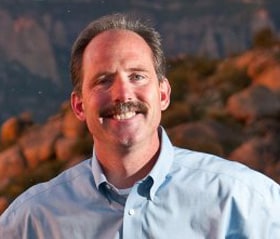They say that the definition of insanity is doing the same thing over and over again and expecting a different result. This link is to a spreadsheet illustrating political control of New Mexico’s Legislature over the past 80+ years (since 1931). In summary, Democrats have controlled the House and Senate for a combined total of 160 years between the two bodies with Republicans having controlled one body or the other for a total of 6 years.

Clearly, given New Mexico’s economic and education outcomes, liberal, big-government policies have failed. But what works? In a new opinion piece, Rio Grande Foundation president Paul Gessing discusses how reduced taxation on micro-breweries has led to a boom in micro-breweries in New Mexico:
It often seems that New Mexico’s economy is haunted by the ghost of Lew Wallace. Wallace, who also wrote Ben Hur, was territorial governor of New Mexico in the late 1800s. Wallace was apparently confounded by our State and was quoted as saying, “All calculations based on our experiences elsewhere fail in New Mexico.”
In dealing with New Mexico policymakers and the business community, Wallace’s attitude towards successful initiatives in the other 49 states seems to permeate discussions. Sure, they say, “Right to work states are generating jobs faster than forced-unionism states, but that doesn’t mean it will work here.”
Or, “Having no income tax may work in Texas or Washington State, but we couldn’t possibly go without an income tax here.” A corollary to that statement is that the Richardson-era tax cuts which took New Mexico’s top income tax rate from 8.2% to 4.9% “failed” even though New Mexico led the region in personal income growth between 2000 and 2009 when those tax cuts were being phased in.
Policymakers in New Mexico often resist school choice, deregulation, and a variety of pro-freedom reforms that have proven track records of effectiveness and popularity elsewhere. Then they wonder why New Mexico’s economy and education systems fare so poorly.
On the other hand, policymakers have repeatedly embarked upon costly infrastructure projects like the Rail Runner and Spaceport and over-generous subsidies for particular businesses or industries that have seen little success wherever they have been attempted with little success.
With all of these failures, it is worth pointing out a recent success brought on by a relatively small policy change in the Legislature. That success, the tremendous growth of New Mexico’s craft brewing industry, is a great example of how lessening tax burdens can lead to tremendous growth.
During the 2013 legislative session, New Mexico law was changed so that microbreweries pay a tax of 8 cents per gallon on the first 10,000 barrels of beer brewed and sold in state. The tax rate increases to 28 cents per gallon for all beer production between 10,000 and 15,000 gallons. Above that, the tax is 41 cents per gallon.
This improves upon previous legislation targeted at microbreweries that gave them an 8-cent-per-gallon rate on the first 5,000 barrels of beer produced with the 41 cent rate kicking in after that.
According to the Tax Foundation, our 41 cent-per-gallon tax is 14th-highest in the nation. That’s the highest rate in the region although Utah’s tax is charged at the same rate. Not surprisingly, Colorado, arguably the epicenter of the microbrew industry, charges only 8 cents-per-gallon on all beer produced in the state.
These modest tax reductions have unleashed a boom in New Mexico’s microbrew industry. Santa Fe Brewing Company recently hired 105 new people to expand their operations, but with new microbreweries opening with increasing regularity, that is just the tip of the iceberg.
The message is simple: tax burdens matter! While the “brewery boom” is encouraging, its lessons need to be translated from a niche industry to New Mexico’s broader economy.
Unfortunately, liberal politicians in Santa Fe who have controlled our political system for generations seem more inclined to give business a hard time than to reduce tax and regulatory burdens.
These policies have resulted in New Mexico being passed over time and time again (and being poor). Simply put, our public policies are unattractive to businesses when compared against other states, especially those nearby.
It is true that taxes and regulations are not the only drivers of business’ decisions when it comes to location. Geography, infrastructure, and workforce issues will always play a role in business location and development, but the impact of public policies is unavoidable.
To become prosperous, we must transform our public policy climate. If serious reforms are enacted, contrary to Lew Wallace’s statement, New Mexico can and will see the same prosperity as other states that have embraced free market reforms.
Paul Gessing is the President of New Mexico’s Rio Grande Foundation. The Rio Grande Foundation is an independent, non-partisan, tax-exempt research and educational organization dedicated to promoting prosperity for New Mexico based on principles of limited government, economic freedom and individual responsibility




![IMG_0747[1]](http://riograndefoundation.org/errorsofenchantment.com/wp-content/uploads/2014/10/IMG_07471-300x287.jpg)





/assets/images/5411.png)


